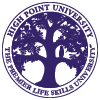The contents of our cells are in constant motion, and a network of pathways known as membrane trafficking is responsible for transporting materials, such as proteins and lipids, to the final destinations where they are needed most. The cell’s ability to grow, develop, and respond to a changing environment is dependent upon proper movement of these cargoes. Membrane trafficking abnormalities can be observed in diseases like cancer and neurodegenerative disorders, but we have not yet determined the therapeutic benefits of correcting them. An important obstacle is that only some of these cellular transport pathways are well studied, while others are poorly understood.
Our research investigates the membrane trafficking events that enable the cell to adapt to conditions of stress and starvation, particularly examining the cellular compartments and proteins responsible for transporting critical lipid membranes and membrane-associated proteins within the cell. We use baker’s yeast to investigate new pathways and to identify the specific cargo molecules, like proteins, that move along them. This involves genetic manipulation of yeast and observation of fluorescent cargo proteins trafficking throughout the cell.

Publications:


